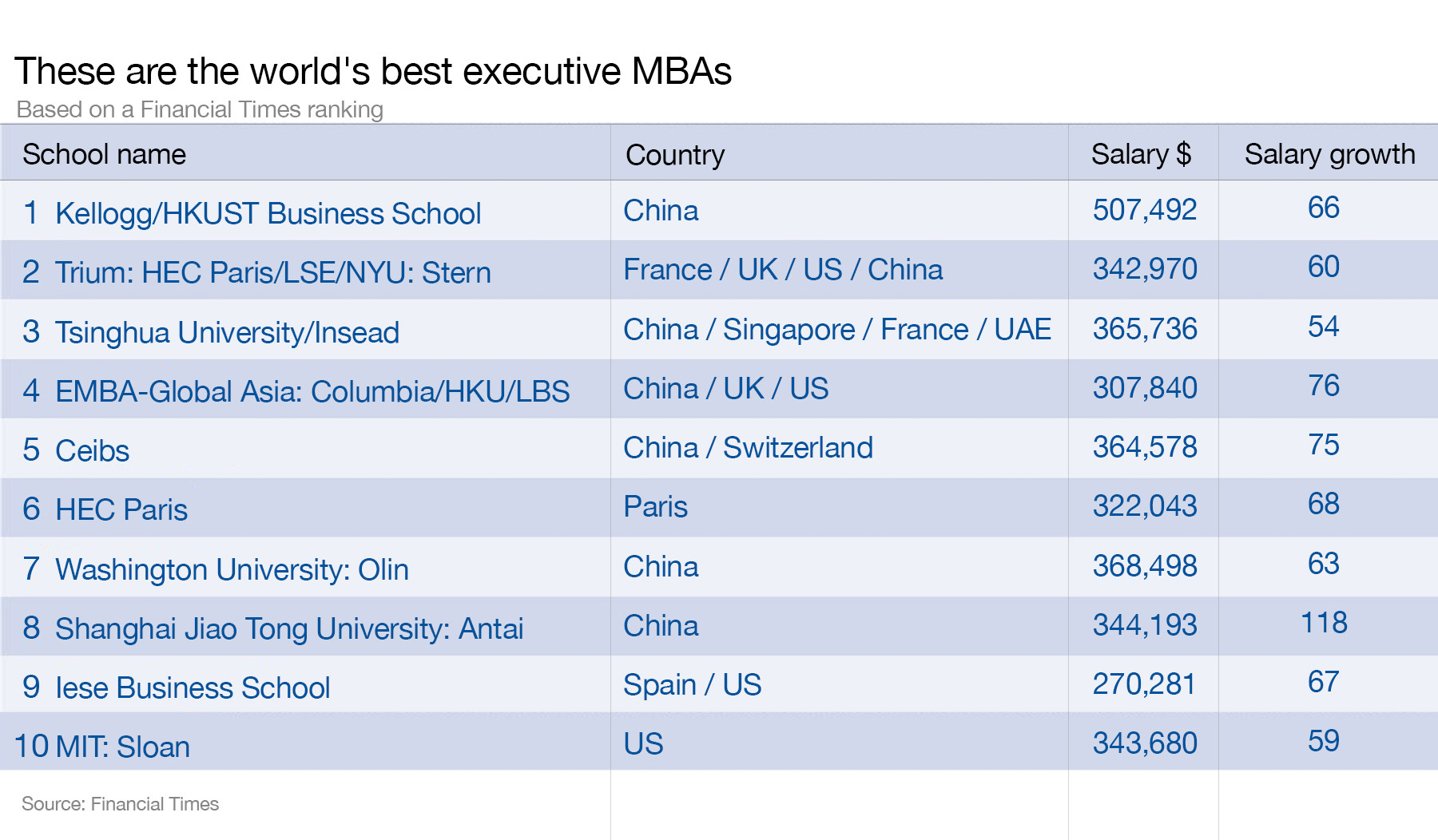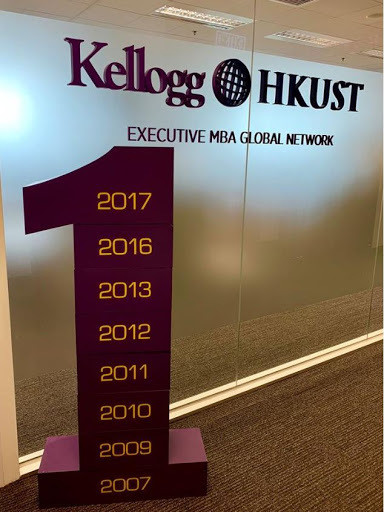The best Executive MBAs, according to the Financial Times

The Executive MBA can mean a salary increase of up to 66% and a fast track to leadership. Image: REUTERS/Russell Boyce
For many aspiring graduates, completing a Master of Business Administration (MBA) is a critical first step on the way to a glittering career.
For those already in a job, the Executive MBA can mean a salary increase of up to 66% and a fast track to leadership.
But where should they go to study? According to the Financial Times, these are the best places to get an Executive MBA.

In first place is Kellogg/HKUST Business School in China, the ninth time in 12 years that this institution has topped the rankings. More than half of the graduates from the class of 2015 are company leaders three years after graduation. And those graduates can expect a salary of over $500,000.
China dominates the list, either with individual institutions or with those that form part of a larger consortium.
For instance, in second place is the Trium Global EMBA, which is a joint MBA with NYU Stern, the LSE and HEC in Paris. Students study in all four locations as well as remotely, and alumni can expect a salary of almost $350,000 after graduating.
Similarly, Tsinghua University, in third place, offers an EMBA in partnership with INSEAD, one of the world's leading business schools. The programme is taught across INSEAD’s three campuses in Singapore, Abu Dhabi and Fontainebleau, Paris as well as at Tsinghua’s campus in Beijing.
Aside from Kellogg/HKUST Business School, the other best performing stand-alone institution is HEC Paris International, in sixth place. Their EMBA features in the list for the first time and offers students a possible $322,043 salary, with an average increase in salary of 68% once employees achieve this qualification.
One of the US’s most famous EMBA locations, Massachusetts Institute of Technology, comes in tenth.

Wider responsibilities
The ranking is based on data collected from business schools and their alumni who graduated in 2015.
Alumni fill in online surveys detailing their salary today, salary increases to date, career progress, work experience and aims achieved.
For the first time, the FT also took corporate social responsibility into consideration, looking at what proportion of the core courses are dedicated to topics such as ethics, and social and environmental issues.
Other important factors included the number of articles published by a school’s current full-time faculty members as well as the number of female students on the course.
Executive MBA graduates are much more likely to work in industry and manufacturing than younger alumni from full-time MBAs or those doing a masters in management. They are also less likely to be employed in finance or consulting.
But in both cases, there are significant rewards to be had from gaining such a qualification from a top educational institution.
Don't miss any update on this topic
Create a free account and access your personalized content collection with our latest publications and analyses.
License and Republishing
World Economic Forum articles may be republished in accordance with the Creative Commons Attribution-NonCommercial-NoDerivatives 4.0 International Public License, and in accordance with our Terms of Use.
The views expressed in this article are those of the author alone and not the World Economic Forum.
Stay up to date:
Education
Related topics:
Forum Stories newsletter
Bringing you weekly curated insights and analysis on the global issues that matter.
More on Education and SkillsSee all
David Elliott
December 19, 2024






